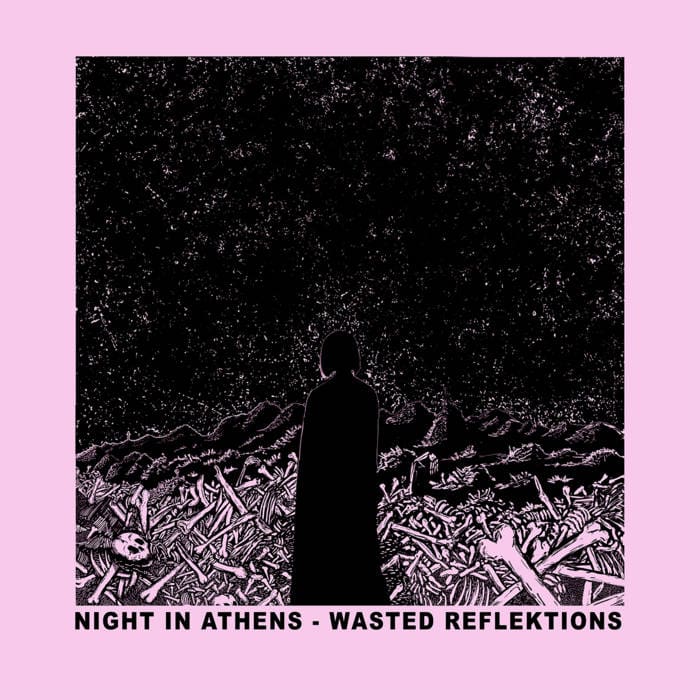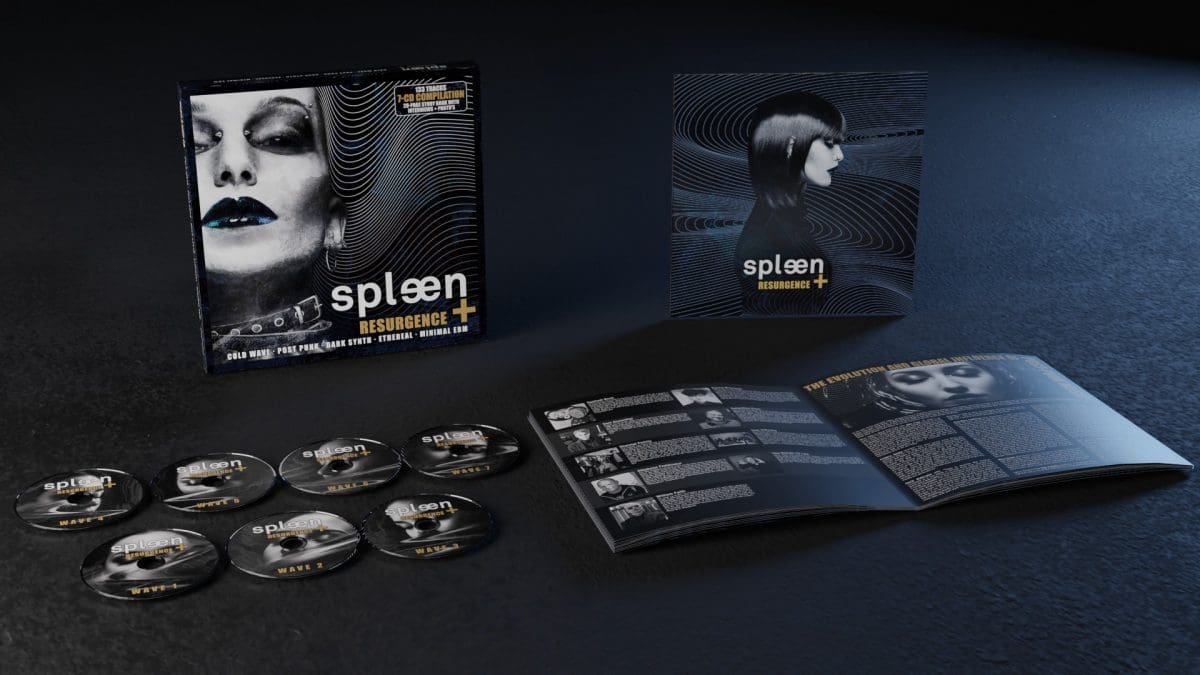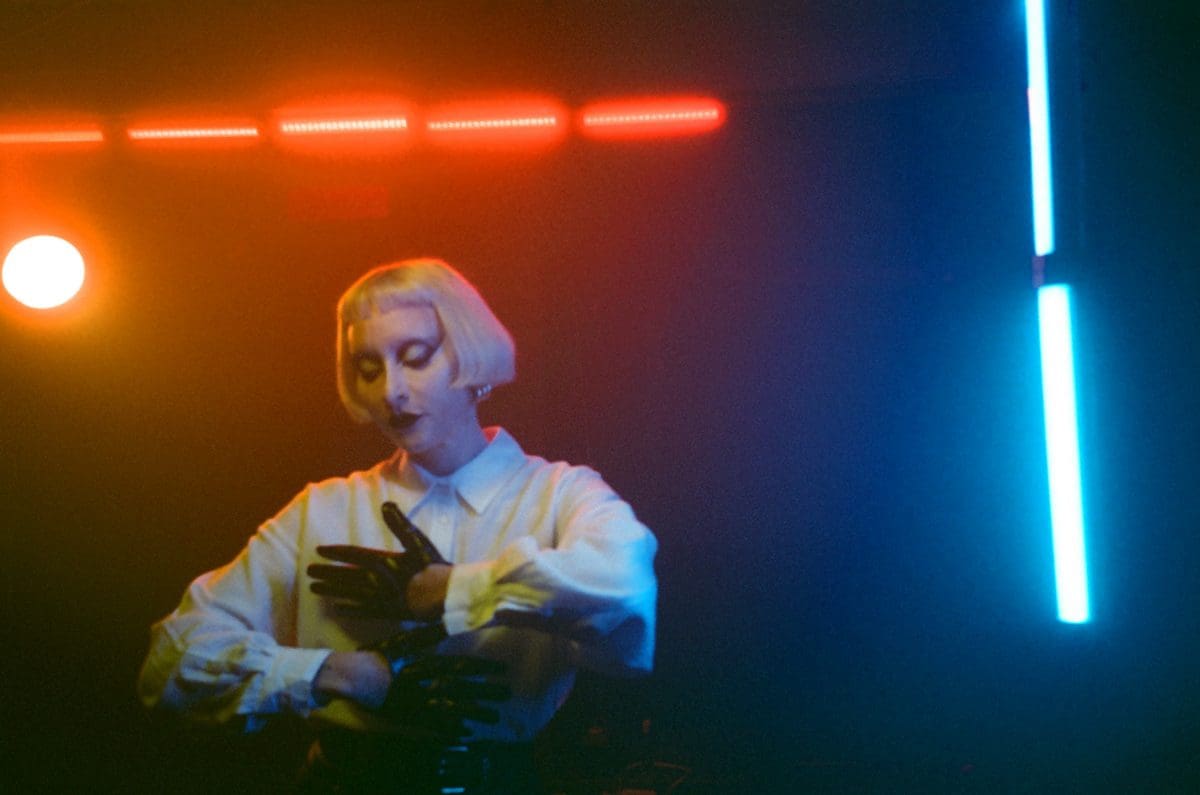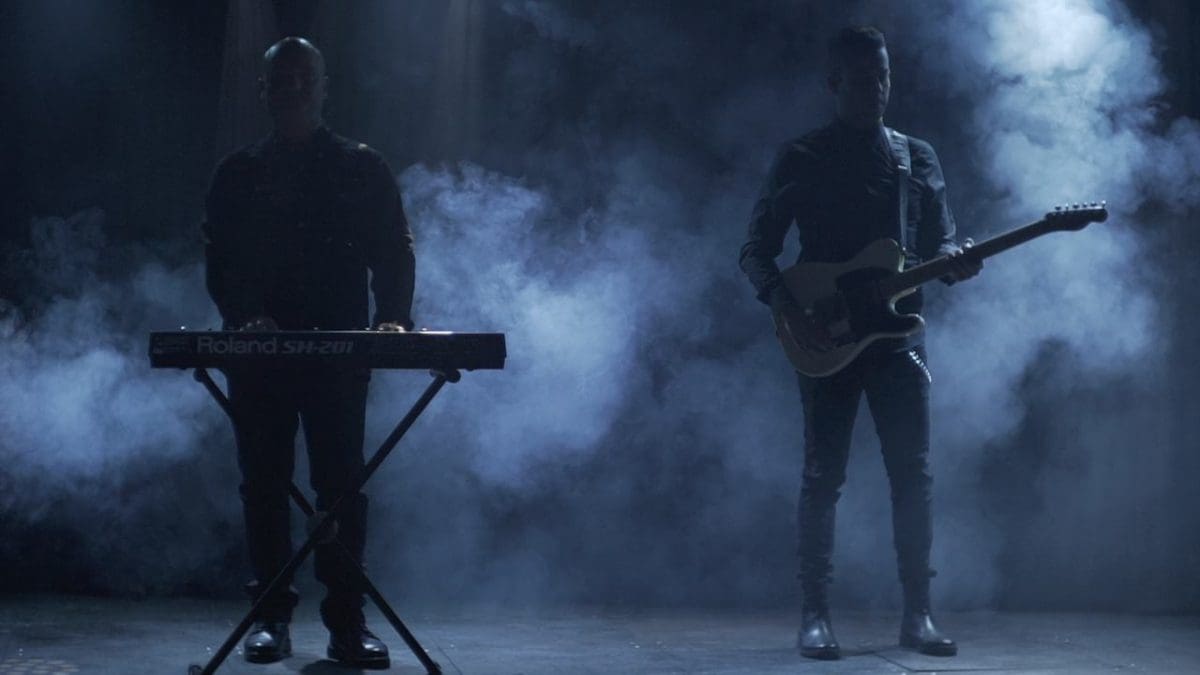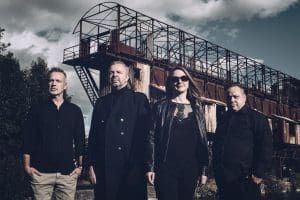Interview with Night In Athens: ‘My Performance Is Influenced By The Freedom For Abstract Expression’
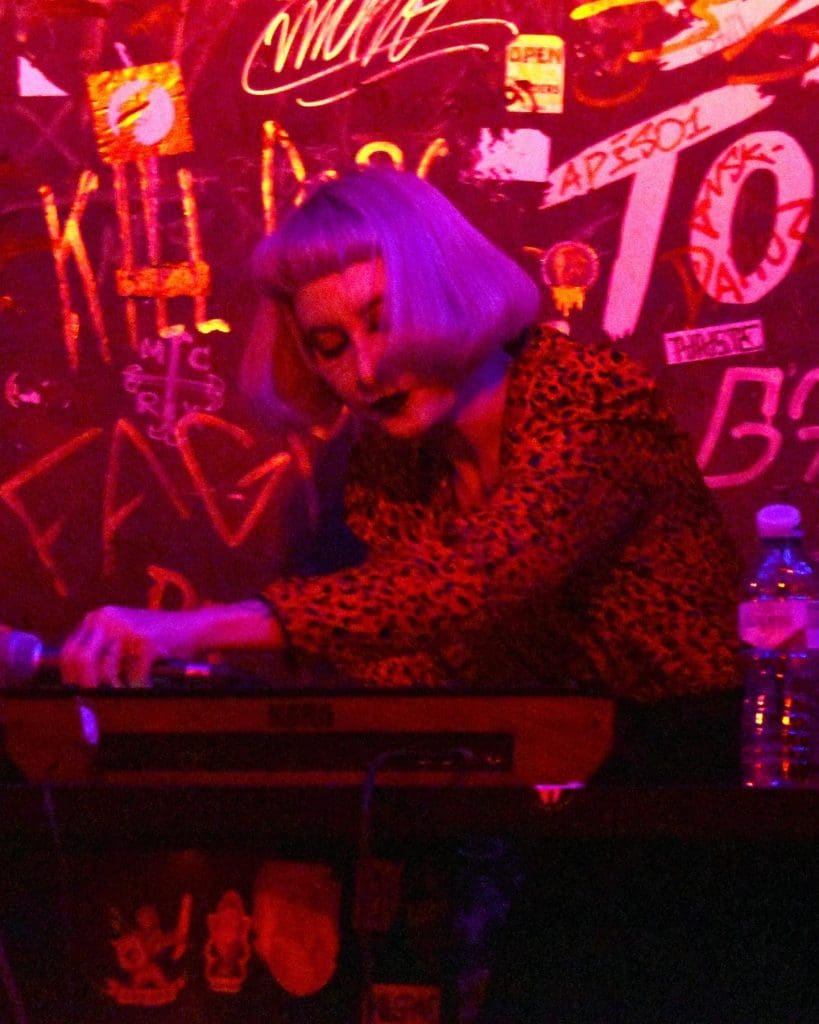
Night In Athens is a solo project by Greek artist Tina Boleti, launched unexpectedly during the 2020 lockdown while she was based in London, UK. Tina, formerly a keyboardist in various bands, draws inspiration from genres like Dark-Wave, Cold-Wave, and Punk. Her distinctive sound made its debut with the album “Metropolis” in 2021, revealing a unique blend of atmospheric and minimalistic tones. Following a series of EPs, Tina returned this year with her second full-length album, “Wasted Reflektions”, released through Danse Macabre Records in Germany and Wave Records in Brazil. This latest work features a fresh, Minimal/Electro-Wave style, conjuring an evocative, icy 1980s atmosphere across a range of captivating tracks. I recently spoke with Tina to delve deeper into this latest release and her creative journey.
(Courtesy by Inferno Sound Diaries)
Q: Tell us a little more about the background of Night In Athens. How did this project come about, and what were the musical influences and examples that served as inspiration?
Tina: This project began during lockdown in 2020. Initially, I had no idea of taking it to the performance level; I had been composing electronic music on DAWs for some time and I was playing keyboards and drums in bands. But I felt compelled to take it more seriously at the time, following a sequence of unfortunate events. I was largely into the Punk and Rock & Roll London scene; I liked The Cramps and Suicide, but I had started listening to a lot of synth revival music in the 2010s. I can’t say I had a specific genre inspiration, but it helped a lot since I had been to a Boy Harsher event where Hante was opening, and for some reason her image kept triggering my mind as I was getting ready to release my music.
Q: You are Greek, but Night In Athens was born in London (UK). What was, and perhaps still is, the influence and impact of the musical scene in London on your work? What significant differences do you notice when compared to other places or cities?
Tina: I believe that my performance is influenced by the freedom for abstract expression, as well as the Experimental-Noise and Punk culture in the UK. Unfortunately, the London Electronic Dark-Wave and Goth scene is not as popular as one might think these days. There is one difference in the crowd though: they are highly open, nonjudgmental, and willing to welcome various projects.
Q: To what extent can one refer to this as a solo project, or is it more accurate to describe it as a collaborative effort involving guest musicians? How do you achieve an alchemy and balance in song composition?
Tina: This is a completely solo project. I invited a guitar-playing friend to play two songs from my last album, which I also wrote myself. So it would be inaccurate to term collaboration because I have never collaborated with anyone.
Q: Tell us more about the origins and content of your new album, “Wasted Reflektions.” What themes does this album explore, and how do you reflect on the entire composition and production process?
Tina: This is an album my older self might have created 10 years ago. Back then, I had little experience with music production and lacked the resources necessary to write a whole album. But I had riffs and lyrics, and I was feeling a particular way. I believe it comes across as more self-indulgent and emotional. I realised that the right time to come out was now. I’m very specific about the instruments I’ll use now, and I’ve delved deeper into music production than ever before. Also, certain feelings I was feeling back then felt as if they had been locked inside me, but it was time for them to emerge.
Q: I have the impression that the lyrics are quite introspective and delve into the human mind and personal experiences. How personal are these lyrics, and what inspired you? I’m also curious about how you translate lyrics into sounds that ultimately become songs.
Tina: Yes, as I already stated, they are introspective, and it was a moment in which I dived into myself and my dark inner thoughts, as most people do. I’m not sure what to say about translating them to songs; normally, I write the song first, then change the lyrics, especially if they fit with the music I’ve written.
Q: What else would you like to share about specific aspects such as the singles and videos you’ve created, your live experiences, the importance of image, and your vision for the future?
Tina: I don’t have much to say other that I’m interested in the project’s aesthetics and how it will end out. This is why I use specific images or videos. I design my own merch and most of my artwork is made by myself. On stage, I am more concerned with conveying the emotion of my music than with my technical abilities. I am quite critical of my work and am aware that it may not appeal to everyone, but I am grateful that some people can hear it and connect with me.
Thank you for the opportunity of this interview.
Watch the clip “Pressure”:
Since you’re here …
… we have a small favour to ask. More people are reading Side-Line Magazine than ever but advertising revenues across the media are falling fast. Unlike many news organisations, we haven’t put up a paywall – we want to keep our journalism as open as we can - and we refuse to add annoying advertising. So you can see why we need to ask for your help.
Side-Line’s independent journalism takes a lot of time, money and hard work to produce. But we do it because we want to push the artists we like and who are equally fighting to survive.
If everyone who reads our reporting, who likes it, helps fund it, our future would be much more secure. For as little as 5 US$, you can support Side-Line Magazine – and it only takes a minute. Thank you.
The donations are safely powered by Paypal.


